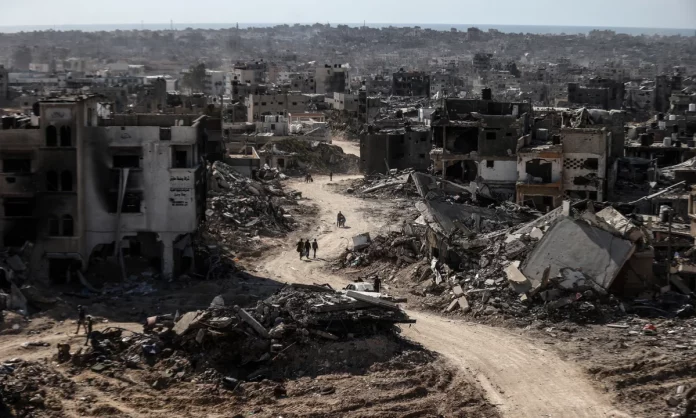The humanitarian situation in Gaza has reached a catastrophic level, particularly in the northern regions, where intensified military operations and displacement orders have resulted in a severe crisis. As of October 2024, over 700,000 civilians have been forced to flee northern Gaza due to ongoing Israeli operations, with around 350,000 still remaining in Gaza City and nearby refugee camps. The United Nations and other humanitarian organizations have raised alarms about the worsening conditions as they struggle to deliver essential aid amidst constant airstrikes and limited access.
The Israeli military’s recent mass displacement orders have left civilians in northern Gaza with shrinking areas of refuge. Many have been forced to move south, where resources are already strained. This has caused a bottleneck effect, with limited shelter, food, clean water, and medical supplies. The United Nations and international aid organizations have condemned the Israeli operations for exacerbating the already dire humanitarian situation, calling for an immediate halt to the displacement of civilians and unrestricted access for aid workers.
Humanitarian agencies have been hampered by the military actions, with essential relief operations either suspended or severely curtailed. The blockade on Gaza, compounded by the destruction of infrastructure, has left hospitals overwhelmed and in dire need of supplies. At least 20 humanitarian workers have lost their lives due to airstrikes, and hospitals, schools, and shelters are frequently targeted, making them unsafe for the displaced population.
The first aid convoy in weeks managed to enter Gaza through the Rafah crossing in Egypt, but the 20 trucks carrying food, water, and medical supplies were just a fraction of what is needed to address the crisis for over 2.3 million residents. According to the World Health Organization, the limited aid will barely scratch the surface of the escalating health crisis, with growing fears of disease outbreaks due to unsanitary conditions and lack of medical resources.
In addition to the immediate needs for food and healthcare, there are increasing concerns about the long-term impact on the population. Children, who make up a large proportion of Gaza’s population, are among the hardest hit, facing malnutrition, psychological trauma, and the loss of educational opportunities as schools have either been destroyed or are being used as shelters.
International actors, including the United Nations, have called for greater political will to ensure the safe delivery of aid and an immediate ceasefire to prevent further civilian casualties. Yet, despite these calls, military operations continue, with airstrikes targeting areas where civilians have sought refuge. Without significant intervention, the situation is likely to worsen, with millions facing starvation and lack of healthcare in the coming weeks.
The international community is divided on the issue, with some countries calling for immediate action to protect civilians, while others have expressed support for Israel’s right to defend itself. However, the humanitarian cost continues to mount, and organizations such as the International Red Cross and UNRWA have stated that unless access to Gaza is improved, the situation could lead to an unprecedented disaster.
In summary, Gaza’s humanitarian crisis is spiraling out of control, with the most vulnerable—children, the elderly, and the sick—bearing the brunt of the conflict. The need for immediate and unimpeded humanitarian access has never been more urgent.
